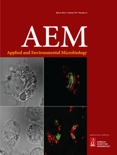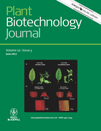
FEMS YEAST RESEARCH
metrics 2024
Catalyzing Progress in Biotechnology Applications
Introduction
FEMS Yeast Research, published by Oxford University Press, is a leading academic journal dedicated to the study of yeast biology, focusing on various aspects such as physiology, genetics, and biotechnology applications. With an ISSN of 1567-1356 and an E-ISSN of 1567-1364, this journal serves as a vital resource for researchers, professionals, and students alike, fostering advancements in the field of applied microbiology and biotechnology. Recognized for its significant contributions, it holds a 2023 Q2 ranking in both Applied Microbiology and Biotechnology and Medicine (miscellaneous), reflecting its influence within the scientific community. Operating from its base in the United Kingdom, FEMS Yeast Research spans over two decades, with content converging from 2001 to 2024, and continues to disseminate innovative findings that underpin both basic research and practical applications. Researchers can explore cutting-edge studies, engage with expert opinions, and contribute to a growing knowledge base in yeast research, making this journal an indispensable tool for scientific inquiry and discovery in the microbiological landscape.
Metrics 2024
 0.63
0.63 2.40
2.40 2.50
2.50 109
109Metrics History
Rank 2024
Scopus
IF (Web Of Science)
JCI (Web Of Science)
Quartile History
Similar Journals

Microbial Cell Factories
Advancing the Frontiers of Microbial InnovationMicrobial Cell Factories is a premier peer-reviewed journal dedicated to the field of applied microbiology and biotechnology, published by BMC in the United Kingdom since 2002. With an impressive impact factor, this journal has consistently ranked within the Q1 category across multiple disciplines, including Applied Microbiology, Bioengineering, and Biotechnology, showcasing its significance in the scientific community. The journal’s commitment to open access ensures that innovative research is freely available to researchers, professionals, and students worldwide, fostering collaboration and knowledge dissemination. With a strong presence in Scopus rankings, Microbial Cell Factories is recognized for its contributions to advancing the understanding and application of microbial processes in production systems, making it an essential resource for those involved in the microbiological and biotechnological fields.

JOURNAL OF PLANT RESEARCH
Nurturing Insights for a Greener Future.JOURNAL OF PLANT RESEARCH, published by SPRINGER JAPAN KK, is a leading academic journal that has carved a niche in the field of Plant Science. With its ISSN 0918-9440 and E-ISSN 1618-0860, this journal has been disseminating high-quality research since its inception in 1993 and continues to be essential reading for academics and practitioners alike, aiming to bridge the gap between innovative plant research and practical applications. The journal is highly regarded, holding a prestigious Q1 ranking in Plant Science for 2023, and is positioned in the top 80th percentile within the Scopus rankings for Agricultural and Biological Sciences. The journal's coverage includes a wealth of topics pertinent to advancing our understanding of plant biology, ecology, and sustainable agricultural practices. Although it operates under a subscription model, its influence in the research community remains profound, making it a vital resource for contemporary studies in plant-related disciplines.

APPLIED AND ENVIRONMENTAL MICROBIOLOGY
Advancing Knowledge at the Intersection of Microbiology and EcologyApplied and Environmental Microbiology, published by the American Society for Microbiology, stands as a leading journal in the fields of applied microbiology and environmental science since its inception in 1976. With a prestigious Q1 quartile ranking across multiple categories including Applied Microbiology and Biotechnology, Ecology, and Food Science, this journal consistently disseminates high-impact research that drives innovation and advances our understanding of microbial interactions within our ecosystems and industries. As ranked by Scopus, it exhibits prominent rankings in various related fields, underscoring its critical role in shaping contemporary microbiological research. Researchers, professionals, and students alike can stay abreast of groundbreaking studies while contributing to a vast body of knowledge that spans diverse aspects of microbiology, biotechnology, and ecology, ultimately contributing to sustainable practices. Join the community of dedicated scholars and explore vital research findings that impact both environmental health and technological advancement.

Kvasny Prumysl
Advancing the Art and Science of Brewing.Kvasny Prumysl is a distinguished open-access journal dedicated to the field of brewing science and technology, published by the Research Institute Brewing & Malting. Since its inception in 2019 as an open-access platform, Kvasny Prumysl aims to provide a comprehensive forum for researchers, professionals, and students in the brewing sector to share cutting-edge research, innovative methodologies, and significant advancements in brewing science. With an ISSN of 2571-3868 and an E-ISSN of 2570-8619, this journal fosters collaboration and knowledge exchange within the brewing community, contributing to sustainable practices and excellence in brewing. Based in Prague, Czech Republic, Kvasny Prumysl seeks to elevate its global presence, ensuring that the latest findings are accessible to all through its open-access model. The journal invites submissions through a rigorous peer-review process, reinforcing its commitment to high-quality research in the brewing industry.

Horticultural Plant Journal
Elevating Standards in Plant Science and SustainabilityThe Horticultural Plant Journal, published by KEAI PUBLISHING LTD, stands at the forefront of horticultural research and innovation. With an ISSN of 2095-9885 and an E-ISSN of 2468-0141, this open access journal has been committed to disseminating significant findings in horticulture since 2015. As of 2023, it proudly holds prestigious Q1 rankings across multiple categories, including Biochemistry, Genetics and Molecular Biology, Ecology, and Plant Science, reflecting its impactful contributions to diverse scientific fields. Located in Beijing, China, the journal not only facilitates groundbreaking studies but also provides crucial insights into sustainability and environmental issues, being ranked in the top tiers of relevant disciplines. This makes it an invaluable resource for researchers, professionals, and students who aim to stay at the cutting edge of horticultural science, offering them the latest research that informs both academic understanding and practical application.

PLANT BIOTECHNOLOGY JOURNAL
Innovating for a sustainable tomorrow through plant research.Plant Biotechnology Journal, published by Wiley, is a premier open-access platform dedicated to advancing the field of plant biotechnology. Since its inception in 2003, this journal has played a pivotal role in disseminating high-quality research that enhances our understanding of plant genomics, biochemistry, and molecular biology. With an impressive impact factor and a prominent position in Q1 quartiles across Agronomy, Crop Science, Biotechnology, and Plant Science, it ranks among the top journals globally, reflecting its significant influence in the agricultural and biological sciences. Researchers and professionals can access cutting-edge studies and reviews that facilitate innovation in sustainable crop production and biotechnology applications. The journal's transition to an open access model since 2016 has further amplified its reach, ensuring that vital research is available to a global audience, promoting collaboration and knowledge sharing within the scientific community.

JOURNAL OF MICROBIOLOGY
Unveiling the mysteries of microbes for health and industry.JOURNAL OF MICROBIOLOGY, published by the Microbiological Society Korea, is a prestigious peer-reviewed journal dedicated to the advancement of knowledge in the fields of microbiology, applied microbiology, and biotechnology. Established in 1996, this journal serves as a vital platform for researchers and professionals from around the globe to disseminate their findings and engage in multidisciplinary discussions pertaining to microbial sciences. With an H-index that reflects its impact, the journal holds a commendable Q2 ranking in key categories including Applied Microbiology and Biotechnology, as well as Medicine (Miscellaneous), which underscores its significance in the academic community. Despite being a subscription-based journal, the JOURNAL OF MICROBIOLOGY aims to contribute to the understanding of microbial processes and their applications, facilitating advancements that are essential in health, industry, and environmental sciences. Researchers, students, and practitioners are encouraged to explore this rich resource for the latest research and trends in microbiology.

Open Life Sciences
Bridging Disciplines in Life Sciences ExcellenceOpen Life Sciences is a distinguished open-access journal published by DE GRUYTER POLAND SP Z O O, dedicated to advancing research across diverse disciplines in the life sciences. Since its inception in 2014 and transitioning to open access in 2015, the journal has become a pivotal platform for researchers, fostering the dissemination of high-quality scientific work while ensuring that valuable findings are freely accessible to the global community. With an impressive categorization into Q2 in Agricultural and Biological Sciences and Q3 in several other fields including Biochemistry and Immunology as of 2023, Open Life Sciences promotes innovation and knowledge sharing across its broad spectrum of topics. The journal's commitment to excellence is reflected in its competitive Scopus rankings, making it an essential resource for professionals and students alike who are keen to stay at the forefront of life sciences research.

Biotechnology for Biofuels
Harnessing the power of biotechnology for sustainable biofuels.Biotechnology for Biofuels, published by BMC in the United Kingdom, stands at the forefront of renewable energy research. As an open-access journal since 2008, it has become a critical platform for sharing innovative research and developments in the field of applied microbiology and biotechnology, particularly in the sustainable production of biofuels. With an impressive 2023 ranking of Q1 in multiple categories—including Applied Microbiology and Biotechnology, Biotechnology, and Management, Monitoring, Policy and Law—this journal offers unparalleled visibility and accessibility for your work. Its Scopus metrics underscore its influence, with rankings in the top 10% across several categories, emphasizing its integral role in advancing research on environmental sustainability and bioenergy solutions. Researchers, professionals, and students alike will find in this journal a rich resource for current studies, methodologies, and policies essential for navigating the complex landscape of biofuel technology.

ARCHIVES OF MICROBIOLOGY
Bridging Disciplines, Inspiring DiscoveriesThe Archives of Microbiology, published by Springer, is a reputable journal in the field of microbiology, serving as a vital platform for the dissemination of groundbreaking research and critical reviews since its inception in 1974. With an ISSN of 0302-8933 and an E-ISSN of 1432-072X, this journal operates out of Germany and maintains a global reach, promoting high-quality scholarship across multiple disciplines, including biochemistry, genetics, and molecular biology, as evidenced by its Q2 ranking in Medicine (miscellaneous) and consistent Q3 placements in other categories in 2023. Although the journal does not offer open access options, its rigorous peer-review process ensures that published articles are of the highest standard, making it an essential resource for researchers, professionals, and students keen on advancing their understanding of microbial sciences. As the journal converges toward 2024, it remains committed to fostering innovative microbiological research and facilitating interdisciplinary dialogue within the scientific community.